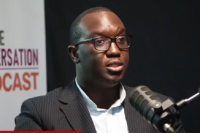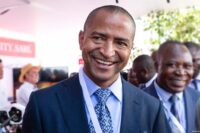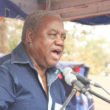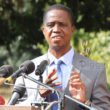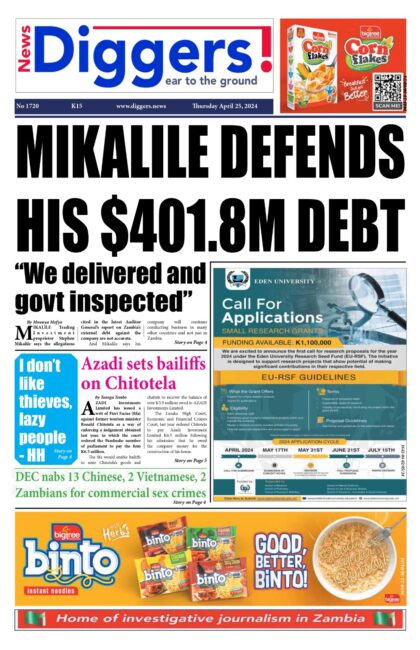MINISTER of Commerce, Trade and Industry Chipoka Mulenga says government has not borrowed any money to build schools, arguing that the only loan that is yet to be gotten is the $1.4 billion from the IMF.
And Mulenga says the monthly fuel adjustments are not a mockery, but a way of ensuring that Zambians benefit from whatever is trending on the world commodity market.
Meanwhile, Mulenga says Ministers are working hard to ensure that Presidential trips translate into a reality to benefit Zambians.
In December last year, Finance Minister Dr Situmbeko Musokotwane said government had acquired a loan from the World Bank meant to build high schools in provinces which were previously neglected.
But speaking when he featured on Diamond TV, Thursday, Mulenga said government was given a grant that was going to be paid within a 30 year period, which gives a lot of flexibility.
“We have not borrowed any money to build a school. Set the record straight. I would challenge you to point at which institution has lent us money to build a school. The money that we have gotten and yet to be given is the $1.4 billion with the IMF. Which institution has lent us money to build schools? Prudently as a government with the taxes we are receiving, including the same subsidies, [we] are committed to fulfilling the interests of the Zambian people. The PF told the public that there is a sinking fund but where is it today? There is nothing,” Mulenga said.
“There is a package he mentioned to borrow from the World Bank and we are still negotiating. The President took a trip to New York for the UN Summit. The IMF gave us a grant, not a loan. That came as a result of the trip he took and the prudent expression in what we did. When you talk about the loan, it is yet to come. I am telling you what it is. I was even in parliament but I do not think that is what we got, it is a grant and we are going to pay it in that way. Within that 30 year period, that gives a lot of flexibility. The construction of schools is not limited to one area. It is across the country and members of Parliament need to take ownership to take their share.”
And Mulenga said the monthly fuel adjustments were not a mockery, but a way of ensuring that Zambians benefit from whatever was trending on the world commodity market.
“While we are doing this, it is not a mockery. We want the Zambian people to really appreciate how the markets are trending in the sector. In the past, we used to see that if there is an increase in any price, there was never translation in the commodities that Zambians were using. The moment they increase, all food prices go up and transport goes up. The world market may reduce the cost of crude oil but Zambia was never reducing. The moment the world market increases, Zambia would increase. So what we have done deliberately as a new dawn government, we want whatever that is trending on the commodity world market, Zambians must be part and parcel of the beneficiation,” he said.
“When we removed the subsidies, we reflected the true cost of fuel itself. The market forces that are happening have provided that there is need to reduce the cost. We do not only need to increase when the world market forces are increasing. So we said the chain where the suppliers buy at a lower price, should be felt by the Zambian people. And at times and again, we will be doing it. If it means reducing three, four times on a monthly basis based on the factors that are affecting the reduction, we will keep doing it. Truth be told, it is only this government that is concerned about the wellbeing of the people. It should be cost reflective based on the trend in the market sector.”
Mulenga said government was still committed to its promise of cost reduction.
“We are not going to leave the Zambian people hanging at high cost when things are happening better. That is why as a government we planned and informed the nation earlier that on a monthly basis, we will be reviewing the prices. So any business sector has to understand what we have done and the planning takes effect. These adjustments range within a certain percentage but ultimately, the goal is to make sure that Zambians get a benefit of what is happening. It has never happened before. We have never known the price of gas reduction in this country because they just kept escalating,” he said.
“We want reality to be seen by the Zambian people. That is why as a government, [we] proactively announced that we will be making these adjustments on a monthly basis. We just removed part of the subsidies on the fuel prices. It raised a little bit of acrimonious statements from other circles of life. We are still committed to that promise of cost reduction. But what we have to do now is let reality dawn, this is it. We are going to start working on the reality to see how best we can bring it down. We have not just raised the price and leave it hanging. We are a responsible government and our focus is to see how we can put fundamentals in place to rebuild and reconstruct our economy which was wrecked.”
Meanwhile, Mulenga said Ministers were working hard to ensure that Presidential trips translate into a reality to benefit Zambians.
“Dubai is a two-week-old trip now. For the first time, Zambia in the gulf region we have not had a relationship that translates into economic development. What I can assure is right now Ministers in respective sectors are busy working to see that the trips we did translate into a reality. Zambia has got an energy deficit. With the appetite of developing industries, we do not have enough power supply to feed into our industries,” said Mulenga.
“We have seen that in the gulf region, they have invested heavily in renewable sectors and this is what we want to do. Remember we have inherited empty coffers but I do not want to keep talking about it because it will seem like I am bringing lamentations. We do not have the money to start rebuilding and we do not want to go and borrow like our friends used to do. We have come up with a model of the public private partnership.”





